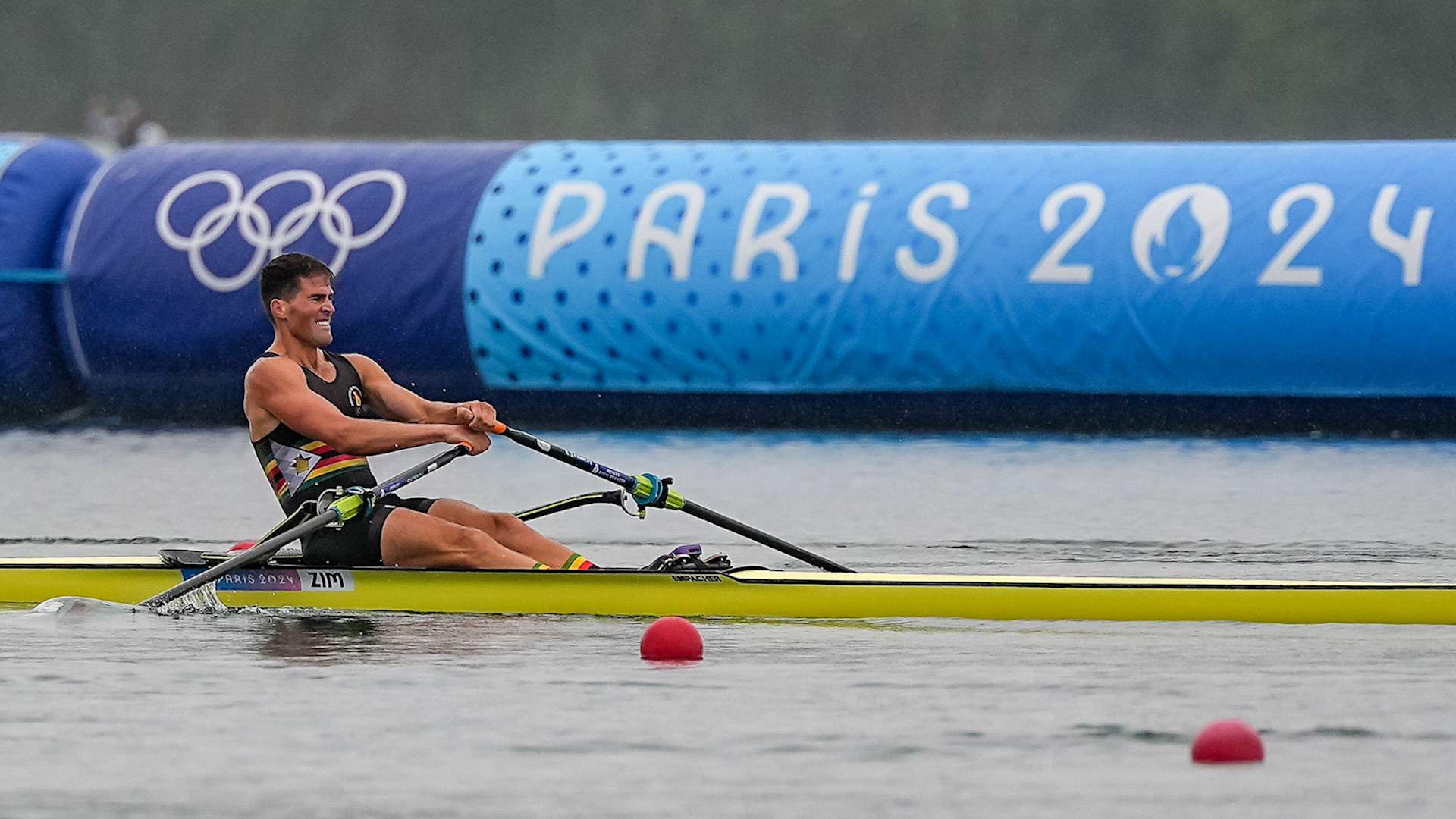
Disappointment for Army's Stephen Cox as he drops out of Olympic medal contention

British Army rower Stephen Cox has dropped out of medal contention at the Olympic Games.
The corporal, competing for Zimbabwe, finished fourth in his men's single sculls repechage after finishing fourth in his heat of the single skulls on Saturday.
His time of 7:11.98 was more than four seconds off third place, which would have given him an automatic qualifying place for the quarter-finals.
The Zimbabwe Olympic Committee (ZOC), ahead of his repechage, praised Cpl Cox's "determination" on social media.
They said: "It's repechage time! Steve Cox is back on the water this morning at 09:36, ready to give it his all and fight for a spot in the next round!
"After a strong 4th-place finish in his heat yesterday, Steve's got the determination and skill to take on the best in the world.
"Let's rally behind him and cheer him on to victory!"
Cpl Cox will have another chance to compete again when he takes to the water in Final E on 2 August, which will determine his overall ranking at these Olympic Games.
He had missed out on the Tokyo Games due to the pandemic, but an amazing performance at the African qualifiers saw him book his place in Paris.
"This dream has been an aspiration of mine since I was 13," said Cpl Cox, who trained Down Under with the Australian rowing team to prepare for the Games.
Cpl Cox joined the military 11 years ago and has managed to combine his Army career with a rigorous training schedule that involved rowing up to 250 kilometres a week, supplemented by weightlifting and cycling to maintain his peak physical condition.
The REME soldier is a proud British serviceman but acknowledges the unusual nature of his competing for Zimbabwe.
He said: "A lot of people get confused about it, but I couldn't thank the British Army enough for how instrumental they've been in this whole process.
"They have provided me with the time and resources needed to train effectively, which is crucial as rowing demands around five hours of training each day.
"Without their assistance, balancing this intensive training with a full-time job would have been nearly impossible."









